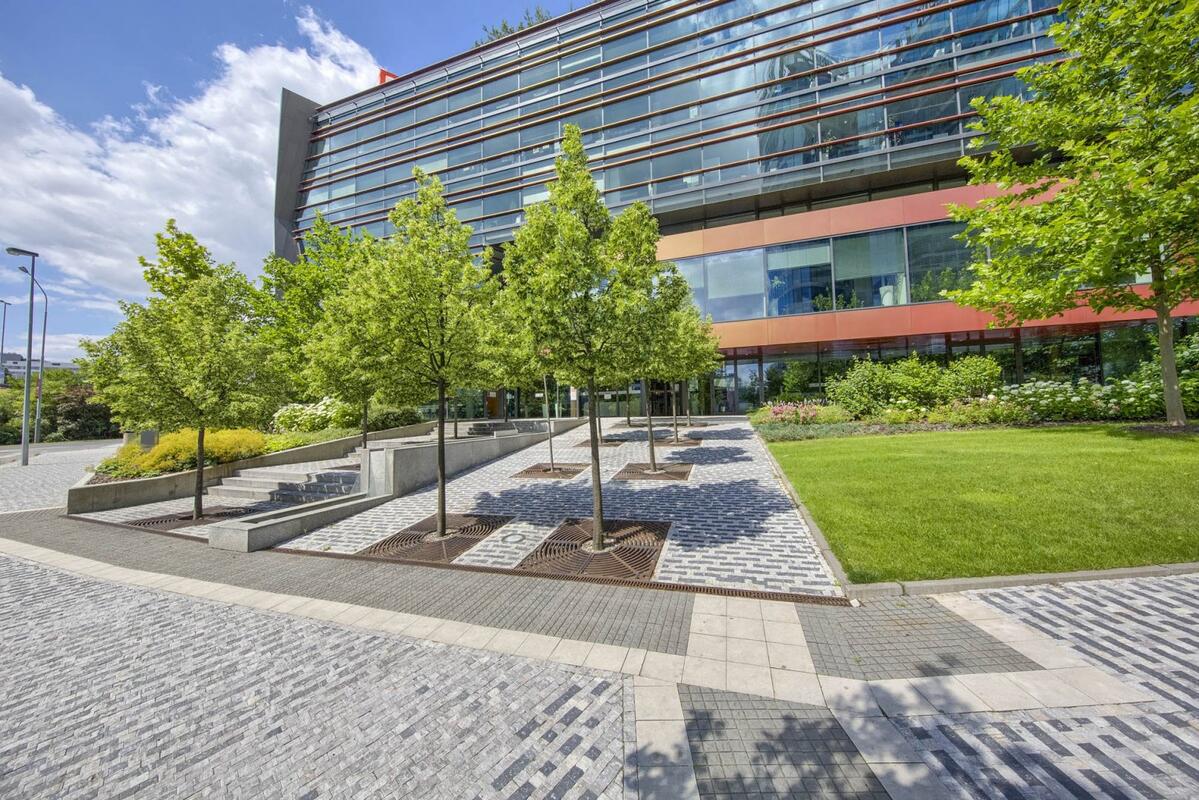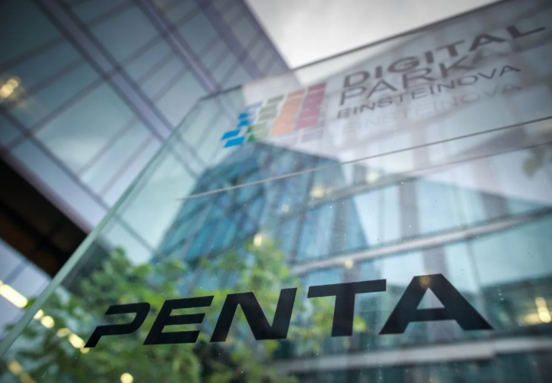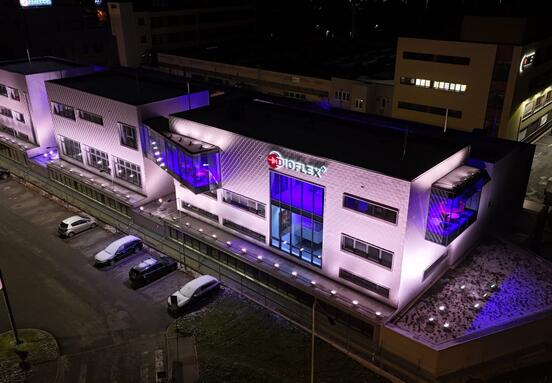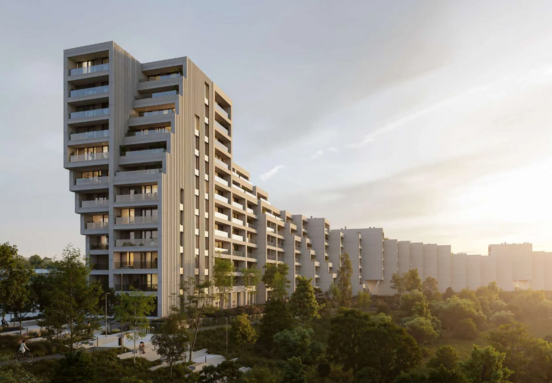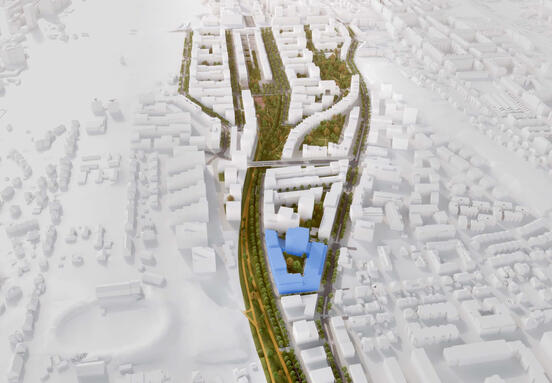The largest volume of investments was recorded in the multifunctional real estate sector. More than EUR 300 million in three transactions secured him a share of 33%. The second strongest sector was retail with 28%, followed by offices with 24% and manufacturing and logistics with 14%. The high share of investments in retail real estate was a surprising result due to the fact that shopping malls are not currently sought after by many investors.
Large transactions have returned
In Q1, the market was dominated by investors from Central and Eastern Europe with a total share of 77.2%, of which Czech capital accounted for 49%, followed by Slovak capital of 23.7%. Investors from Poland took care of the remaining 4.5% somewhat atypically (the purchase of Avion Shopping Park Brno was in fact only the second Polish investment in the Czech Republic in the last ten years). Other active capital in the market came from the United States (12.6%) and Germany (10.2%).
The only segment of the commercial real estate market where the yield on premium real estate continued to decline was manufacturing and logistics. The reason is a combination of strong demand and rising rents. In other market segments, we are seeing steady revenue growth, which is due to limited demand for some types of real estate and also rising interest rates.
Despite the good results in the first quarter of 2022, we expect the market to slow down, for several reasons. The current geopolitical situation discourages many international global players who perceive the location of Central and Eastern Europe as too close to the conflict in Ukraine. Furthermore, the current economic situation is affected by rising prices and the consequent rise in interest rates due to inflation, which reduces the gap between real estate income and interest rates on bank financing. Gradually, many properties are becoming difficult to finance at current yields, especially in terms of loans in Czech crowns. Potential sellers of such properties will be forced to convert rents to euros or significantly adjust their expectations regarding the achievable return, comments the situation on the commercial real estate market David Sajner, Head of Investment at Knight Frank Czech Republic.
Significant investment transactions
Large transactions returned to the Czech real estate market. The largest real estate transaction last quarter was the sale of two shopping centers belonging to the Slovak group 3655.invest. The purchase of the Géčko shopping center in České Budějovice in the 4th quarter of 2021 was followed in the 1st quarter of 2022 by the acquisition of Iga České Budějovice and City Park Jihlava for an estimated price of EUR 215 million.
In contrast to previous years, when only a minimum of transactions above EUR 100 million took place (eg no such transaction took place in 2021), three took place in the first quarter of this year. In addition to the already mentioned shopping centers, the Bořislavka Centrum multifunctional complex was sold to the Reico real estate fund in the first quarter, as well as the Hines Group purchased a portfolio of industrial and logistics properties in Prague and the surrounding area. These two transactions were also estimated to exceed EUR 100 million.
Overview of significant transactions in the 1st quarter of 2022
REAL ESTATESECTORATURING PRICE (EUR million) Igy Č. Budějovice, City ParkJihlavaRetail365.invest215 (estimate) BořislavkaMultifunctionalReico> 100 (estimate) Prague Industrial PortfolioManufacture and LogisticsHines> 100 (estimate) Coral Office ParkOfficesMINT> 90 (estimate) Charles Square Center> 90V BB Centrum E (ČEZ) OfficesRSBC> 70 (estimate) LaughingOFFOfficesPortiva52Avion Shopping Park BrnoRetailMerkury Market & PNGISA41
Source: Knight Frank
Expectations of further development
The rapid rise in consumer prices has forced the Czech National Bank to further increase the key interest rate, which is now at 5%. This will inevitably be reflected in the interest rates on the loans from which investors finance their purchases. The current rate of return thus becomes unsustainable for real estate financing in Czech crowns, and potential sellers will have to look for buyers with equity, or they will have to denominate rents in euros in order to be able to finance real estate in euros as well. However, the current situation is leading to an increase in the interest rate by the ECB, and therefore we expect a further gradual increase in the yield rate.
Another factor that we expect will have a significant impact on the Czech economy and investment market is the ongoing war in Ukraine. Before the war, it was one of the Czech Republic's 20 largest trading partners, especially in the automotive sector and mechanical engineering. In addition, workers from Ukraine formed a significant part of the construction workforce, who thus have to deal not only with a shortage of some building materials, but also with personnel problems, which in turn means construction delays. For example, in logistics halls, the construction time is almost double compared to the years before the pandemic.
The war also makes fuels and all other products more expensive, which contributes to rising inflation. In the fight against inflation, the CNB raised the key interest rate to 5% on 31 March. Development forecasts are gradually being adjusted. While at the beginning of February the CNB expected annual inflation of 8.5% and GDP growth of 3%, we are now heading for stagflation, ie a period of high inflation growth combined with a stagnation or fall in GDP. This will also have an impact on the unemployment rate, which has so far remained very low compared to the rest of the European Union. A short-term outlook for any improvement is currently unlikely.
